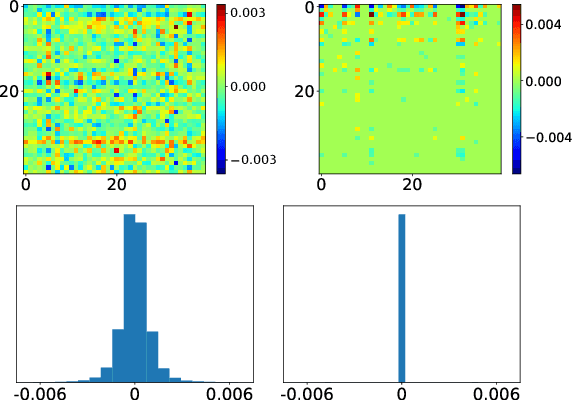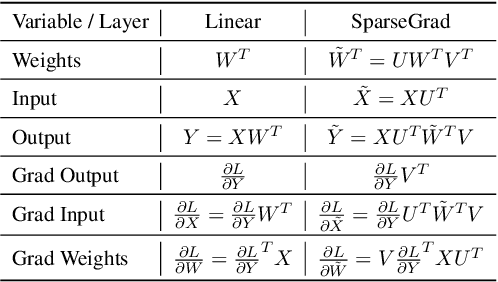SparseGrad: A Selective Method for Efficient Fine-tuning of MLP Layers
Paper and Code
Oct 09, 2024



The performance of Transformer models has been enhanced by increasing the number of parameters and the length of the processed text. Consequently, fine-tuning the entire model becomes a memory-intensive process. High-performance methods for parameter-efficient fine-tuning (PEFT) typically work with Attention blocks and often overlook MLP blocks, which contain about half of the model parameters. We propose a new selective PEFT method, namely SparseGrad, that performs well on MLP blocks. We transfer layer gradients to a space where only about 1\% of the layer's elements remain significant. By converting gradients into a sparse structure, we reduce the number of updated parameters. We apply SparseGrad to fine-tune BERT and RoBERTa for the NLU task and LLaMa-2 for the Question-Answering task. In these experiments, with identical memory requirements, our method outperforms LoRA and MeProp, robust popular state-of-the-art PEFT approaches.
 Add to Chrome
Add to Chrome Add to Firefox
Add to Firefox Add to Edge
Add to Edge